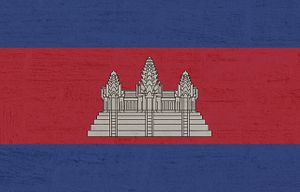Yesterday, the U.S.-funded broadcaster Radio Free Asia (RFA) reported that the English Football League will be making enquiries with Birmingham City Football Club, after RFA’s publication of a report claiming that a Cambodian diplomat secretly controls a chunk of the club’s shares.
The revelation was included in a detailed investigation into the background of one Wang Yaohui, a Chinese-born businessman who has finagled his way both to Cambodian citizenship and to personal enrichment via a web of cozy relationships with high-ranking members of the ruling Cambodian People’s Party (CPP).
The report, the latest in an excellent series undertaken by the journalist Jack Adamović Davies into the secretive business activities of the Cambodian commercial and political elite, shows how Wang has transcended a career marked by scandal to begin a new and lucrative life in Cambodia.
Born in 1966 in chilly Heilongjiang province in northeast China, Wang’s career has been marked by scandal, according to the RFA report. He has been accused of bribery in relation to a copper mine in Zambia and in connection to a Chinese state bank, for which he was detained and an associate was sentenced to life in prison.
But like many other Chinese businesspeople of questionable probity, Wang found green and welcoming pastures in Cambodia, where he moved around 2014 and quickly carved out a lucrative sinecure for himself beneath the capacious awning of the CPP government.
As Davies writes, “Wang used connections among the Cambodian elite to land himself a new nationality, a new name, and a new career. Using his adopted Khmer name, Wan Sokha, he rapidly became an ‘advisor’ to Prime Minister Hun Sen and landed a plum post at Cambodia’s embassy in Singapore, a position he still holds.” Wang’s Cambodian connections, particularly to the businessperson Choeung Sopheap and her husband, the longtime CPP Senator Lao Meng Khin, have also enabled him to pursue a series of business operations.
Among the findings of the RFA investigation is that Wang owns a substantial stake in Birmingham City, which he holds through a Hong Kong-listed company called Birmingham Sports Holdings Limited. According to RFA’s investigation, Wang acquired the 8.52 percent of Birmingham Sports Holdings through a British Virgin Islands company called Dragon Villa Ltd. in December 2017.
RFA reports that under English Football League (EFL) regulations, Birmingham City is obliged to disclose both to the league and publicly the identity of any person who directly or indirectly holds “any Significant Interest in the club.” Birmingham’s ownership disclosure does not name Wang, something that could lead to sanctions from the EFL. Yesterday, the broadcaster confirmed that the EFL is looking into Wang’s ownership of shares in the club.
Davies’ report on Wang Yaohui tells a number of interesting stories. First is the quite astonishing way that the intimate bilateral relations between Beijing and Phnom Penh have hot-housed a crop of mutually beneficial relationships between Chinese businesspeople and the Cambodian elite. Among the most prominent is Chen Zhi, the head of the ubiquitous Prince Group, who similarly took Cambodian citizenship in 2014, the same year as Wang, and is regularly feted by Hun Sen and other senior officials.
Given its widespread corruption and rickety regulatory frameworks, Cambodia has proven especially welcoming to Chinese businesspeople with checkered pasts, which explains the raucous speed at which the coastal town of Sihanoukville became a gambling boom town. But such individuals are also drawn to loosely regulated jurisdictions in other parts of mainland Southeast Asian, most notably Laos – home of the notorious Golden Triangle Special Economic Zone – and the interstitial conflict zones of eastern Myanmar, where Chinese business figures of questionable probity have long flourished.
The second thing the article demonstrates is how the structures of global capitalism – and the armies of lawyers, financial services providers, and other functionaries that service them – are complicit in the corruption that eats away at nations like Cambodia. This is partly a story of Cambodian venality, but also a story of palm-fringed tax havens, shell companies, and pay-to-play citizenship in places like Cyprus and the British Virgin Islands.
Whether or not the English Football League ends up taking action against Wang – and it is not clear that there is anything unlawful about him owning a portion of Birmingham City, merely that the club failed to disclose it – it demonstrates that the rot of global kleptocracy and tax evasion is a much greater problem than the actions of specific corrupt elites.
Foreign governments have long rightly criticized the Cambodian government for failing to crackdown on corruption, but its elites take advantage of, and are enabled by, the very same structures – from offshore tax havens and the security of the London real estate market – as their counterparts in the West. Corruption and kleptocracy at the local level cannot be tackled without a deeper structural reform at the global level.

































